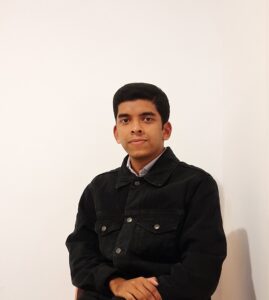what we celebrate and why: Syro-Malabar Catholics and their Lenten Traditions
by George Joseph
In this blogpost series, we ask our participants to reflect on why certain days have special meaning for them personally and why it is important to celebrate these days in different ways.
Syro-Malabar Catholics and their Lenten Traditions
Lent is the period of the year during which the Passion of Jesus Christ is commemorated. Just as there are different denominations within Christianity, there are quite different Lenten traditions too. In the Latin tradition (maybe the one known by most), Lent marks a time of forty days in the calendar – beginning with Ash Wednesday and ending with Easter Saturday. In the following brief text, let us focus on the Easterns Catholic tradition in the Syro-Malabar Church of Indian origin.
Syro indicates Syriac, a dialect of Aramaic, originally spoken by the ancient farmers and shepherds of Babylonia and Nisibis. It is said that the apostle Thomas travelled to the Malabar coast of India, where he founded a Christian community (therefore, we also speak of the St. Thomas tradition when referring to the Syro-Malabar Catholic Church). From the earliest times of Christianity until the sixteenth century, the Christians in Malabar were affiliated with the Roman Pontiff through the intermediate Patriarch of the See of Babylon. When the Portuguese attempted to colonize India in the sixteenth century, a couple of centuries before the British, Syro-Malabar Catholics in India were forcefully separated from the liturgical tradition in Syriac and the hierarchical connections with Babylon. After two centuries of suppression under the hegemony of Latin tradition, this historical error that had trampled upon the richness of Oriental Christianity was corrected by Pope Leo XIII at the end of the nineteenth century. He sustained the Oriental Christian form within the Catholic fold by acknowledging all its distinctions. These Christian distinctions emerged over centuries at the intersection of Indian culture and early Christian theology in Semitic and Asian regions and offer unique opportunities to spark a fruitful dialogue with various worldviews today: Hindu-Buddhist anthropology, Islam, and various brands of relativism. Syro-Malabar Catholics are privileged to encounter both the great intellect of Western theology and the vibrant earthiness of Syriac theology.
Within the limits of this article, let us be content by considering only a few pious Lenten traditions. One striking difference between Latin and Syro-Malabar Catholic tradition might be the duration of Lent. While Latin Catholics observe Lent for 40 days (from Ash Wednesday to Easter Saturday, except all Sundays during this time), for Syro-Malabar Catholics Lent is fifty days long. The Syro-Malabar Lent commences on Ash Monday and continues on Sundays without pause.
Regarding food and dietary rules during Lent, Syro-Malabar Catholic tradition must be understood within the frugal lifestyle embedded in Indian culture. Just like the historical vegetarianism of Brahmanical Hindus, Christians have also followed a vegetarian diet for nearly 180 days a year over the nearly twenty centuries since St. Thomas the Apostle baptized the Malabar and Coromandel coasts of southern India. Within the natural and cultural setting of the Indian tropics, such a lifestyle is not a burden but a jubilant joy. Thus, alongside Lent, the oriental Christians prepare ascetically for Christmas as well as for all the feasts of the Blessed Mother of Jesus. A word about the food culture; the synthesis of indigenous Christians and immigrant Christians on the one hand, and between non-Christians and Christians on the other, has led to a fusion of foreign and Indian food habits. With the movement of Christians to rice-producing regions, a variety of rice-based dishes emerged in the confectionary tradition of the region. Rice pancakes, for which toddy is used for fermentation, rice fritters sweetened and fried in ghee, deep-fried rice cookies, and roasted rice-balls flavoured with coconut are some examples.
An important pilgrimage undertaken by Syro-Malabar Christians in Kerala during Lent is to pray the Way of the Cross by climbing the mountain in the Malayatoor forest on the banks of the Periyar River. It is believed that St. Thomas, the apostle of Jesus Christ who baptized India, prayed on this hill before he was assassinated on the Coromandel coast of India in 72 AD. Interestingly, as a form of piety, several groups of youngsters carry wooden crosses weighing hundreds of kilograms as they climb the mountains and place them at the feet of St. Thomas. The wood is then auctioned and the money used for charity.
Another practice among the Syro-Malabar Christians is to sing the Passion narrative entitled Puthenpana. This poetic text was composed in the early eighteenth century by Johann Ernst Hanxleden, a German priest, for household use. These days, however, this text is used less because the linguistic style has become antiquated, thus making it difficult for the young generation to comprehend the motifs.
As for me, Lent is that part of the calendar year that is still evolving in its form. During my schooldays, I used to abstain from meat and fish for at least a few weeks during the Lenten period. I did that as a simple piety without grasping any deeper meaning. As an undergraduate student, I slowly began to understand the great Paschal mystery of Christ in the company of my friends with whom I climbed the Saint Thomas Mount in Chennai every Sunday. Over the years, I have also been impressed by the rigorous fasting methods of other religions. The most essential thing is to improve my friendship with God, and even the smallest gestures of goodness that come out of genuine conscience adds value to Lent. In a plural setting such as ours, dialogue is integral to achieving this greatest goal.

George Joseph hails from Kerala in India. Since 2020, he is writing a doctoral dissertation in philosophy titled ‘Nature and Reason as Sources of Law in Joseph Ratzinger’s Evaluation of Relativism’ at the University of Szeged in Hungary. Earlier, he lectured at Newman College and Nirmala College of Mahatma Gandhi University. He studied History at Loyola College Chennai and the University of Kerala.
